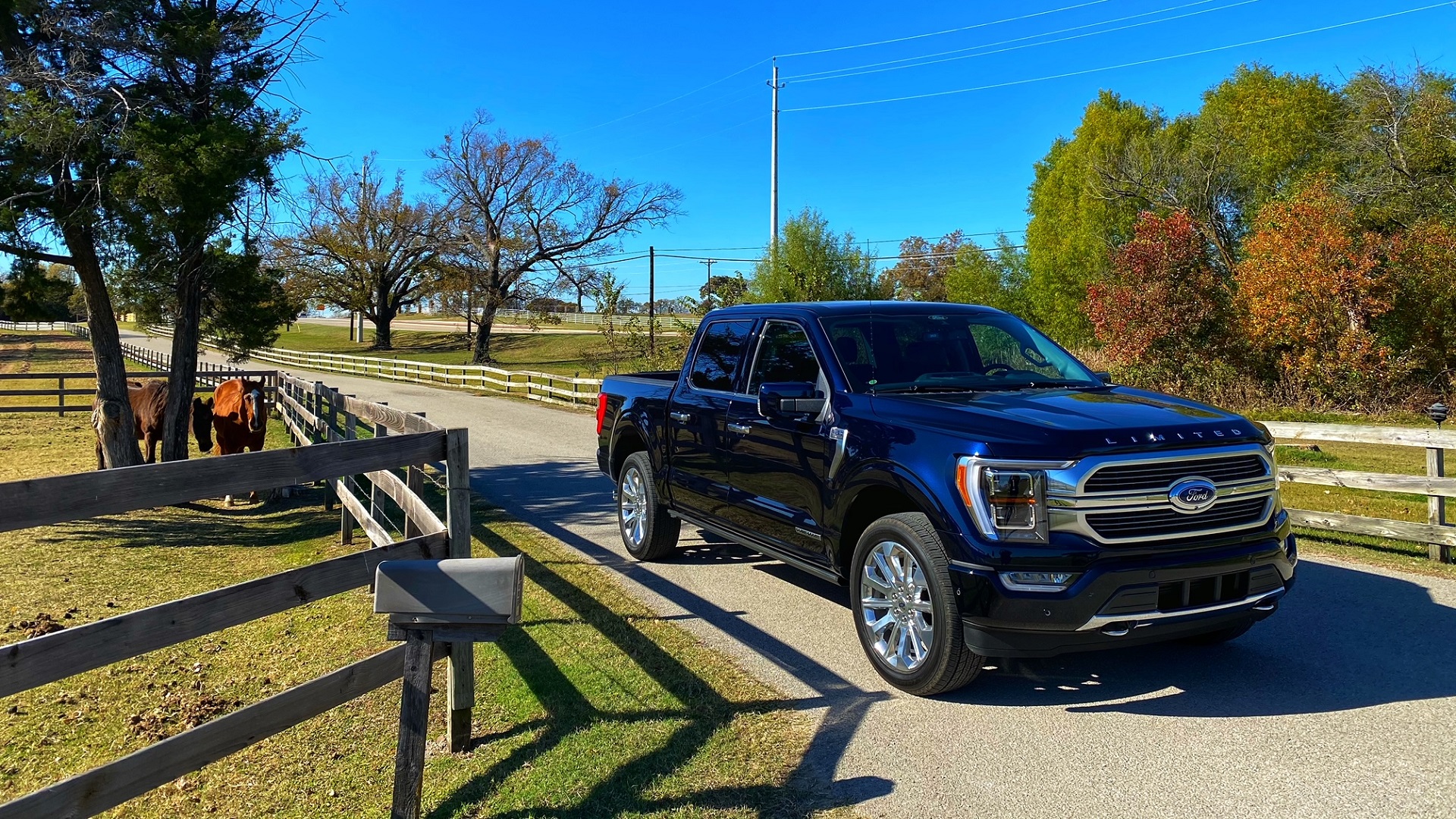

During the global F-150 launch in June of this year, Ford executive Mark LaNeve said that electric powertrains are a big part of the brand’s future.
“Within two years, we’ll have a zero-emissions F-150,” he asserted.
That’s great, but I’ll see your EV and raise you nearly double the mileage with a hybrid. For instance, the 2021 F-150 is offered with a new powertrain that excites me much more: the 3.5-liter PowerBoost. We’ve covered all of the specs here before, and I had a chance to test it out recently, towing a 30-foot trailer weighing more than 7,000 pounds on public roads near Dallas. The 570 pound-feet of torque gave it a kick in the pants, making it smooth sailing while the acceleration was even.
Two things that impressed me about the PowerBoost were the range—Ford claims 700 miles—and the ProPower onboard generator. Basically, I could drive from Austin, Texas (home of the University of Texas) to Norman, Oklahoma to tailgate at a college football game, then drive almost the entire way back without needing to fill up the gas tank. For people like me, for whom the idea of running out of charge and getting stranded is not acceptable, a hybrid mitigates the range anxiety.

If Henry Ford could see his company now, he’d probably shrug as if to say, “What took you so long?” More than a century ago, Ford told The New York Times that an EV was imminent.
“Within a year, I hope, we shall begin the manufacture of an electric automobile,” Ford said in January 1914. “The problem so far has been to build a storage battery of light weight which would operate for long distances without recharging.”
The electric vehicle dreams of 1914 took a back seat to the internal combustion engine with electric self-starters, which took the work out of cranking up a car. Coming all the way around, we’re back to the creation of an all-new electric F-150 coming soon. But range anxiety is real, and in the EV market so far, the Tesla Model S can go the furthest at 402 miles. Its competitors are fast and furious at Tesla’s heels, and it won’t be long before EVs leap past that figure and beyond.
For Ford, the push for EVs now is a continuation of the message it announced back in 2018 at the Detroit Auto Show: the automaker said it’d launch 40 electrified models by 2022 and invest $11 billion in electrification. The Big Three are racing for the top of the EV heap and the superlatives are flying; it was only last week that Mary Barra said GM is in an “all-out pursuit of global EV leadership.” The Hummer EV is setting hearts aflutter with an estimated 350-mile range and gigantic torque numbers.
Smaller upstarts like Rivian and Bollinger are generating buzz as well. Emme Hall and Rebecca Donaghe completed the off-road Rebelle Rally in a Rivian R1T in October. In a Rivian forum, fans expressed hope for more range than the truck got in the rally, which was 167 miles with a pre-production full-size battery pack. Hall (one of my favorite auto journalists) knows trucks better than most of America, and she calls the R1T a “game-changer”. She knows how to squeeze every last electron out of the battery with driving skill alone. For schlubs like me with less expertise, I shudder to think what kind of range I’d get, even when the customer-ready version launches with an estimated 400-mile range courtesy of a 180-kilowatt-hour battery.
As far as I’m concerned, the hybrid is the best of both worlds: if I can drive for 700 miles on one tank with an assist from an efficient battery without stopping for a charge, that sounds ideal to me. I believe that’ll be the case for most consumers, too—at least for the moment.
Got a tip? Send us a note: tips@thedrive.com